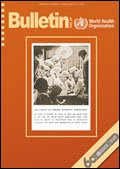Priority Review VoucherAmendments to the US Food, Drug and Cosmetic Act Administration (FDA) come into effect next month, with the issue of the first priority review vouchers expected. The amendments, introducing these vouchers, were proposed to provide new incentives for research into neglected tropical diseases. The bill was introduced by Senators
Sam Brownback (Republican, Kansas) and
Sherrod Brown (Democrat, Ohio) in 2007 and signed by President Bush in September that year.
The
Food and Drug Administration Amendments Act (HR 3580) amended Subchapter A of Chapter V of the Food, Drug and Cosmetic Act (21 USC 351, et seq) inserting
Section 524 and introducing a system of priority review vouchers for companies seeking to register drugs and vaccines for neglected tropical diseases.
The effect of the voucher is to gain fast-track approval for other drugs that company may seek to register in the future, potentially reducing registration times by almost a year. Following Section 524(b)(3)(B), the first voucher may be expected 27 September, ie, one year on from the date of enactment (Presidential assent).
Regulatory delays are frequently cited by pharmaceutical companies as costly inefficiencies, thereby making a system to mitigate these delays very financially attractive to the industry. However, concerns have been raised. Although the vouchers ideally become important and valuable commodities to
facilitate partnerships and to sell onto other companies and thus
finance clinical trials for partnerships researching in these neglected diseases (
amendments in June provided for the transferability of the vouchers), some have cautioned that the system will not necessarily drive new research. Rather, in some cases they will simply entice companies to seek US registration of drugs already on the market in other countries, with the benefit to the company of a very bankable voucher without the social benefit of new research. Others even doubt the value of the voucher, suggesting that the era of the blockbuster drug is over.
The research qualifying for vouchers might also be limited, with vouchers being available only for registration of drugs containing active ingredients not previously approved. This has been noted as a potentially serious limitation of the scheme, with no incentive for research into new uses for existing formulations and
new combination therapies.
 Patent Pools
Patent PoolsAnother significant initiative in access also in the press is that of patent pools. Following the briefing on the UNITAID Patent Pool at the 17th International AIDS Conference, currently underway in Mexico City, James Love
explains the major features of the UNITAID patent

pool:
- the pool is created as a voluntary mechanism;
- patent owners have the opportunity to identify the field of use for patents licensed to the pool;
- patent owners may exclude countries to which the licence will not apply.
Patent pools are not new, one of the first dating back to the 19th century when a group of sewing machine competitors (including Singer) decided in 1856 to cross-licence rather than decimate their profits by suing each other. This kind of business model persists today and is arguably of very significant application when it comes to medicines.
The Universities Allied for Essential Medicines (UAEM) this week endorsed the scheme: "UNITAID steps forward as a visionary leader in the global fight against diseases affecting the poor." UAEM has called upon universities to endorse the scheme and to contribute to the scheme through consultation with present licensees and through reservations on future licences.
Generics remain instrumental in facilitating access to treatment in developing countries, and at a time when generics are credited as dominating the US Global AIDS initiative, concerns have been raised regarding the scope of the proposed Anti-Counterfeiting Trade Agreement (ACTA). In comments on the proposed agreement, the Generic Pharmaceutical Association (GPhA) urged the US Trade Representative (USTR) "not to allow the rising momentum behind a global anti-counterfeiting strategy to be diffused by deviating into expanded IP protection and enforcement with respect to patents and data exclusivity." Today, a sign-on letter was released by Essential Action and others, urging negotiators to publish the draft text together with pre-draft papers and criticising the ongoing secrecy of the negotiations.
Comments Invited on UK Policy in Access to Medicines
Meanwhile, research is currently taking place into UK Government policies on access to medicines, with consultation with industry, government departments and other stakeholders due to take place in the first half of September. The draft report, being prepared by Emma Back and Samia Saad, will be published in early October on which there will be further consultation later that month. The report will ultimately inform the subsequent edition of the UK's Good Practice Framework, to be managed by the Department for International Development (DFID) in conjunction with Business Enterprise and Regulatory Reform (BERR), Department of Health (DH) and the Intellectual Property Office (IPO).
Comments on key issues to consider and address are invited by the consultants. These should be provided in no more than two pages and no later than 22 August 2008. These may be sent directly to Emma Back (emma.back1@hotmail.com) and Samia Saad (samiasaad@gmail.com).
 imply resulting in proxy advertising for the pharmaceutical industry. Secretary General of the Pharmaceutical Group of the European Union (PGEU), John Chave (pictured at right), is not convinced of the need for the legislation: "If, however, the laws are to be changed, it is of fundamental importance that public confidence in the integrity of the information provided is maintained. The pushing of information by the industry should never be a proxy form of promotion or advertising. The sole justification for change can only be to help patients and not to grant more commercial freedom to the pharmaceutical industry." In its submission to the public consultation, the PGEU identified problems with self-regulation in the industry, among other concerns.
imply resulting in proxy advertising for the pharmaceutical industry. Secretary General of the Pharmaceutical Group of the European Union (PGEU), John Chave (pictured at right), is not convinced of the need for the legislation: "If, however, the laws are to be changed, it is of fundamental importance that public confidence in the integrity of the information provided is maintained. The pushing of information by the industry should never be a proxy form of promotion or advertising. The sole justification for change can only be to help patients and not to grant more commercial freedom to the pharmaceutical industry." In its submission to the public consultation, the PGEU identified problems with self-regulation in the industry, among other concerns.











